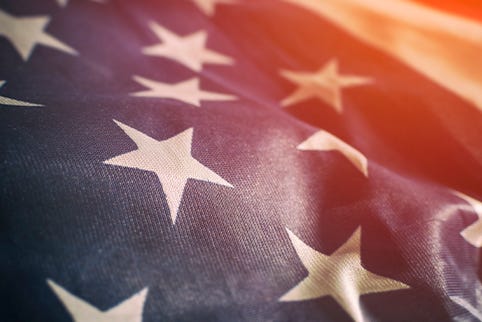#3: CIVICS 101: On Democracy and Its American Interpretation
Q&A #3: What is the role of the citizen in our Government?
Our American Government
Our American Government is a small book published by the House of Representatives for citizens and those who seek a greater understanding of the American interpretation of democracy. It follows a question-and-answer format and covers a broad range of topics dealing with the three branches of our Government, the electoral process, and the role of political parties.
The Savvy Citizen is reproducing the 169 questions-and-answers through a series of posts called Civics 101. Each post will contain the Q&A as well as some additional commentary to add historical context, fun facts, or anything we believe will add to our collective understanding of these topics.
Think of it as your adult Civics class, but without the test!
Let’s keep at it.
—
SECTION: Democracy And Its American Interpretation
Q&A #3. What is the role of the citizen in our Government?
The United States today is even more of a participatory democracy than was envisioned by the Founders when they established a government ‘‘of the people, by the people, and for the people,’’ as President Abraham Lincoln later described it.
Along with the constitutional responsibilities which accompany citizenship, such as obeying laws and paying taxes, the citizen is afforded a wide range of rights and opportunities to influence the making of public policy by the Government.
At the most basic level, the right to vote gives the citizen a chance to help select those who will ultimately be responsible for determining public policy. Beyond casting the ballot, a citizen may actively assist in nominating and electing preferred public officials through volunteer activities and campaign donations. The participation of citizens in the electoral process contributes greatly to the sense of legitimacy of the Government.
Citizen involvement in the Government need not be manifested only during election campaigns. Legislators are accustomed to hearing from constituents expressing opinions about issues of the day, and procedures exist that mandate that executive agencies allow time for public comment before proposed regulations become final. Individuals may also join with others who hold similar views to make the most of their influence with Government on particular issues; this is how interest groups or political action committees are established and the lobbying process begins.
—
My Thoughts
Citizenship is a special status. It describes the relationship between a person and a nation-state, and is extraordinarily rare over the course of human history.
SIDEBAR » The differences between citizen and resident form the keystone for understanding America and holding its diverse population in an integrated whole, aka a civil society. We are a nation of citizens, not residents. We do not sustain ourselves by supporting those who merely reside here and enjoy the benefits of America without pledging loyalty or allegiance to the state.
American citizenship is the envy of the world.
People don’t risk life and limb to come to America because we are perfect, they risk life and limb to come here because we are FREE. We are FREE from tyranny and we are FREE from anarchy. But, we’re only free because we work at it. When we stop working at it, we will lose it, every bit of it.
I often hear people say that we Americans are “losing our freedom.” They mean we’re losing our capacity for self-government and self-determinism as a nation. We, the People, decide through our elected representatives, not They, the unelected Elites who wield power in service of themselves (this happens across the ideological spectrum - it’s not a left/right divide). Also, those who conflate social equality with political freedom grossly misunderstand the concept of freedom and what it means.
Citizenship is a pledge of allegiance, loyalty, and, in America, a promise to participate in the process of self-government in exchange for the recognition of civil and political rights that are not afforded to non-citizens.
To be clear, residents, whether here legally or illegally, who have not become citizens are non-citizens. It’s a bright line, an either/or.
But, the line between citizenship and residency is being blurred to such an extent that all distinguishing factors may soon disappear. Then, the keystone will crack, and the whole thing will come tumbling down. Protecting citizenship is the key to keeping our country together. It’s non-negotiable, period, full stop.
—
Back tomorrow with Q&A #4: What contributions has our country made to the institution of government?
xo,
Kelley for the Savvy Citizen Team
October 9, 2024
P.S. When Obama was President, he spoke often of being a global citizen, or a citizen of the world. This wasn’t just a catch phrase, but a foundational shift for his fundamental transformation of America. Tuck this away in the back of your head! More on this later.






Thanks. I am looking forward to more in this series.